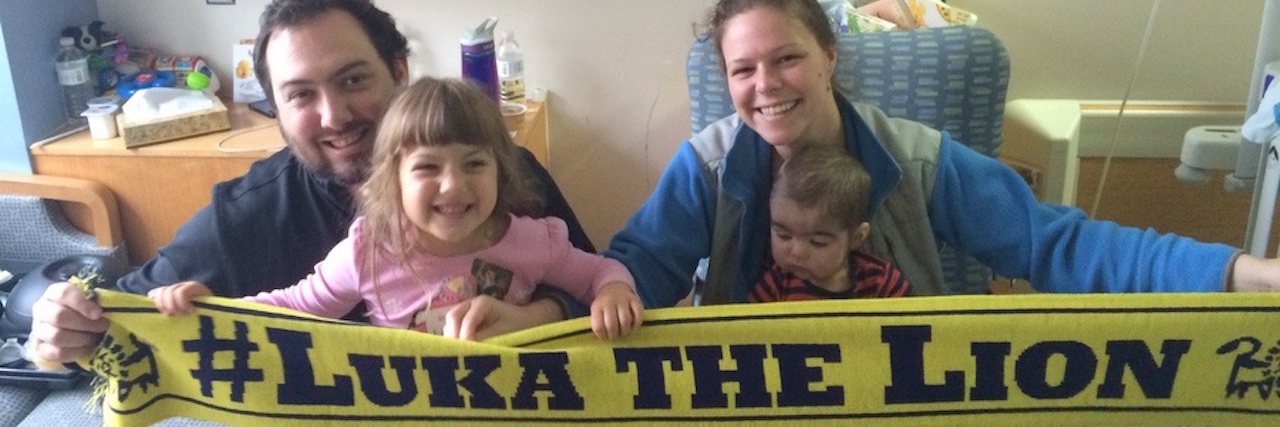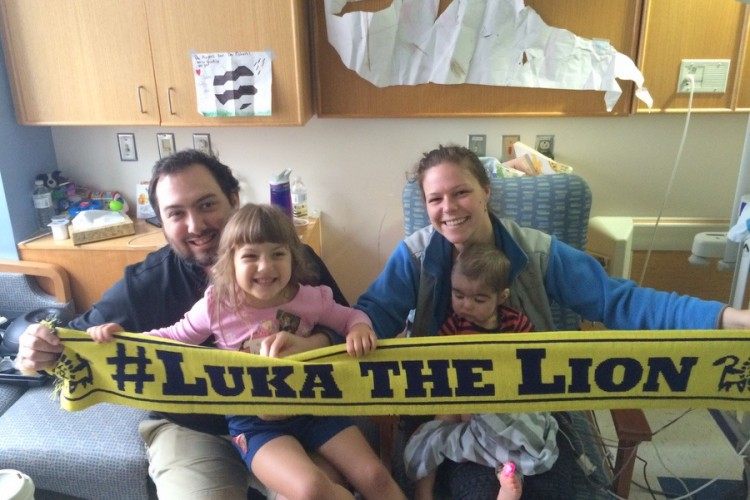When a Nurse in My Son’s Hospital Room Said, ‘I Can’t Imagine That Life’
“I can’t imagine that life.”
This is what a pediatric intensive care unit (PICU) nurse said to me recently not once, but three times as if she were on repeat. I think she was trying to be helpful, but it was hard to receive it that way since the dialogue was unsolicited and came at a particularly heavy time. She was a complete stranger to us and was just in the room to start a peripheral IV and then leave.
While she got her materials ready, she wanted to make conversation even though the mood of the room couldn’t have been more the opposite. In response to her questions, she learned our son has been hospitalized off and on for the past 20 months since shortly after his birth for a rare primary immunodeficiency disease, bone-marrow transplant and subsequent complications with the most recent being a life-threatening virus. It had been a long night and day trying to ensure he had access to life-saving medications after his central line stopped working, and we were hours away from yet another surgery.
As my son lay listless as a result of the virus and complications to his bone-narrow transplant — a far cry from the rambunctious toddler he normally is — the nurse was chatty and upbeat. She asked me how I was doing. Twenty months into being a “hospital mom,” three weeks into the most medically intense hospitalization with no end in sight and 15 hours into a frantic day trying to advocate for my son’s medical needs, all I could say to her is, “I understand that you are chipper right now and that’s OK, but we aren’t.”
That’s when I was reminded by the PICU nurse that she “can’t imagine that life” we’re living. I can only assume “that life” is what she imagines it would be like to raise a baby, and now a toddler, with a medically complex diagnosis and rely on health care professionals and a perfect stranger to donate their bone marrow for life-saving treatment. Given that she just came in to start the IV (for which we are truly grateful) and we didn’t know her at all, it felt odd to have a stranger give unsolicited comments about my life in the context of her own imagination.
Well, I can imagine “that life.” But I guess that’s because I’m living it. Perhaps this life has neutralized my feelings of what normal or abnormal is, but this feels like, well, life.
Our #LukaTheLion was born this way, and we’ll do anything for his treatment so he has what he needs to live a full life. If that means living life at the hospital and clinic, then let’s live that life. It’s not easy, but it’s certainly evolved and we’ve adapted. And isn’t that essentially the definition of life?
The nurse’s comment made me think about the concept of “that life.” It may not be a life people imagine when they think of the future. It may not be the life you commonly see in the movies and TV, unless you watch a lot of “Grey’s Anatomy,” and even then I can tell you it’s not like that at all. It may not be the life with vacations, fancy restaurants or late-night concerts. It may not be the life you planned. But it is a life. And there’s more to life than what you think you should be doing.
If there is one thing I’ve learned through osmosis in the past 20 months, it’s that disease doesn’t discriminate. Disease touches us all no matter your age, race, class, station in life — you name it. Each and every one of us has seen a loved one face challenges or felt it for ourselves.
I’ve learned this lesson the most when I’m at the clinic. The lobby, the playroom, the infusion area and the environment allows for open dialogue where you really get to know your neighbors whether you like it or not.
We took a trip to the clinic from our “hospital home” recently for our lion to have a procedure. We were in the clinic for about two hours total, and it was surreal to be there since we’d been away for a few weeks. In that time, people have gotten married, resigned or moved. Patients who were new this summer are now knee-deep into chemo with long braids being traded for short, soft strands. Moms of teenagers tell stories about how their daughters don’t like them being there on scan days because it makes them anxious. Toddlers want more snacks.
And what I witnessed as I sat there was — life. “That life.” Even when our child is facing a serious disease, we can still make the most of it because we’re living it.
We are living “that life” each and every moment no matter where we are and no matter what obstacles are in our way.
To this life!


